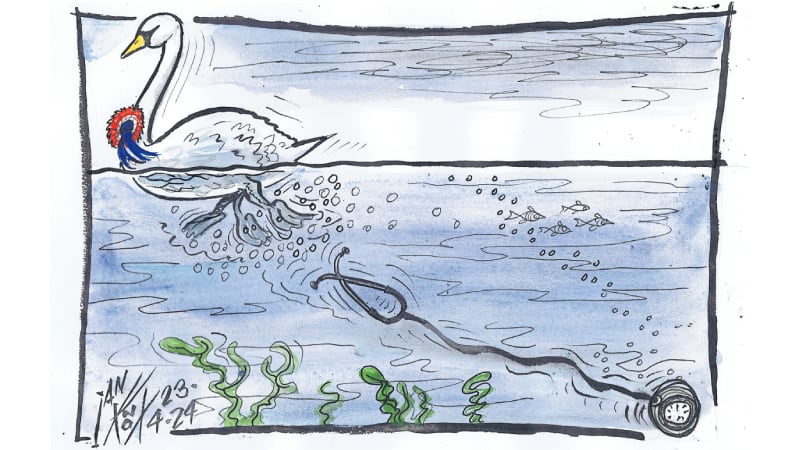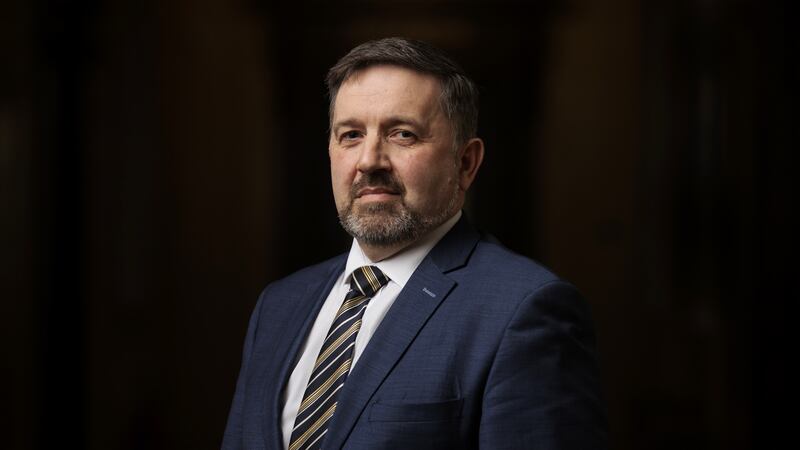Even if he delays calling a new assembly election, the new Northern Ireland Secretary of State will still be unable to prevent future crises resulting in the intermittent collapses of the assembly institutions including the power-sharing executive itself.
The core problem that caused its instability emanated from the St Andrews Agreement when the method of electing the executive was changed – following which the executive has been led jointly by a first minister from Northern Ireland’s largest designated unionist political party and a deputy first minister from its largest designated nationalist party. The first executive appointed under this new arrangement was led jointly by Ian Paisley and Martin McGuinness. This pattern continued thereafter with DUP nominees for first minister and Sinn Féin nominees for deputy first minister until the recent election in May this year. Following it Sinn Féin are now entitled to hold the post of first minister and DUP are entitled to hold the post of deputy first minister.
This carve-up of political power between the two largest parties on both sides of the traditional divide had an inherent weakness. Instead of encouraging them to work together in the common interest of Northern Ireland and its people, it provided each of them with a political ‘veto’ which they both have regrettably used to prevent the assembly from functioning for their own political objectives – Sinn Féin used this power because of the lack of progress on an Irish Language Act and the DUP are currently using it to seek the removal of the Northern Ireland Protocol.
The procedure for electing the executive urgently needs to be amended now to ensure the election of an executive to prevent further collapses of the assembly and its institutions in the future.
The current British and Irish governments should urgently initiate discussions with all of Northern Ireland’s political parties to consider a new method of electing the current executive and all future executives.
If another assembly election is called in October, it will simply result in increased seats for Sinn Féin and the DUP at the expense of the SDLP and Ulster Unionists respectively and future crises will arise.
One suggestion that I would offer to ensure the full functioning of the assembly is that the British and Irish governments should agree to amend the St Andrews Agreement by adding a ‘default mechanism’ to be implemented in event of either of the two main parties preventing the power-sharing assembly from discharging its powers. In such a scenario, the British government should invite all parties to engage in negotiations with one another to form a voluntary coalition government that will command a majority in the assembly and meet the requirement of fulfilling the criteria of having sufficient cross-community support to the satisfaction of both the British and Irish governments. Those parties that prefer not to be part of the coalition government could then serve as the official opposition.
I believe the introduction of such a change would guarantee political stability and the formation of future power-sharing executives in accordance with the Good Friday Agreement.
JOHN CUSHNAHAN
Lisnagry, Co Limerick
Only western Ukraine voted for Zelensky
Liz Truss states that the UK will give £2.3 billion of taxpayers’ money to supply Ukraine with weapons to continue their war against Russia. Our country is in such dire financial straits that a voluntary collection should be considered from those UK citizens who feel strongly about supporting this ongoing conflict. I, and most people here, did not vote in Zelensky, only western Ukraine did that and it all emanated from the coup organised by US assistant secretary of state, Victoria Nuland, assisted by Geoffrey Pyatt, ambassador to Ukraine, following Maidan. Victoria Nuland also had the temerity to pick the candidates to replace the previous democratically elected government, so causing the rift between east and west Ukraine, along with the eight-year war against the Donbass. During this period Russia was concerned but not to the extent of getting involved militarily, that is until Zelensky became president, with his immature statements to Russia, ultimately threatening to resurrect Ukraine’s previous nuclear arms production. He could instead have stated that Ukraine would become a democratic non-aligned, nuclear-free state in harmony with the countries on its borders and having economic relations with everyone. Nato wanted to expand into Ukraine, causing Russia to take the action that it has. Russia’s 2,300km border with Ukraine was never going to be a threat to Russian security. In the 30 years since independence, many presidents have passed through, but only Zelensky has managed to upset Russia to this extent. He is an amateur politician, who gives and takes support from the extremlst nationalists controlling the Verkhovna Rada, who have devastated the Donbass regions since 2014. Donetsk and Lughansk will never return to Ukraine following their vote for autonomy.
Where’s this balanced reporting that Ofcom were so concerned about that led to the removal of RT and Sputnik? Does it call the one-sided reporting that has replaced it, balanced?
EDWARD MURPHY
Ballycastle, Co Antrim
Clown world truly alive
It was interesting to read the article on Hillary Clinton (September 14) where she and her daughter Chelsea are teaming up for a new TV series Gutsy – celebrating the women they admire and look up to. I thought it amusing the line “Hillary Clinton isn’t above trying her hand at clown school” was an interesting line to use. I thought it also equally amusing in relation to the women they look up and admire – Kim Kardashian in her ‘quest in legal advocacy work’ is given a mention.
Clown world is truly alive but then again maybe I’m just easily amused.
SINEAD MURPHY
Castlewellan, Co Down
Support your local National Lottery project
Four local projects have been named finalists in the National Lottery Project of the Year category in the 2022 National Lottery Awards and need readers’ support to help them win.
The National Lottery Awards celebrate the inspirational individuals and organisations who do extraordinary things with the more than £30m raised by National Lottery players for good causes.
Among the nominees are the mental health charity The Niamh Louise Foundation; An Tobar, a community wellness centre and social farm in south Armagh; East Belfast GAA’s Youth Together project and ‘The Reconnect Project – It’s Never too Late’, an innovative collaborative art initiative by Spark Opera and Women’s Aid to support victims of domestic abuse.
They are among 17 UK projects from competing for the title of the National Lottery’s Project of the Year.
They could be in with the chance of winning £5,000. They would be delighted if people could support them by casting a vote on www.lotterygoodcauses.org.uk/awards or by tweeting using their unique hashtags #NLANiamhLouise, #NLAAnTobar, #NLAYouthTogether or #NLAItsNeverTooLate. Voting closes at 5pm on Wednesday October 12.
JONATHAN TUCHNER
National Lottery, London







